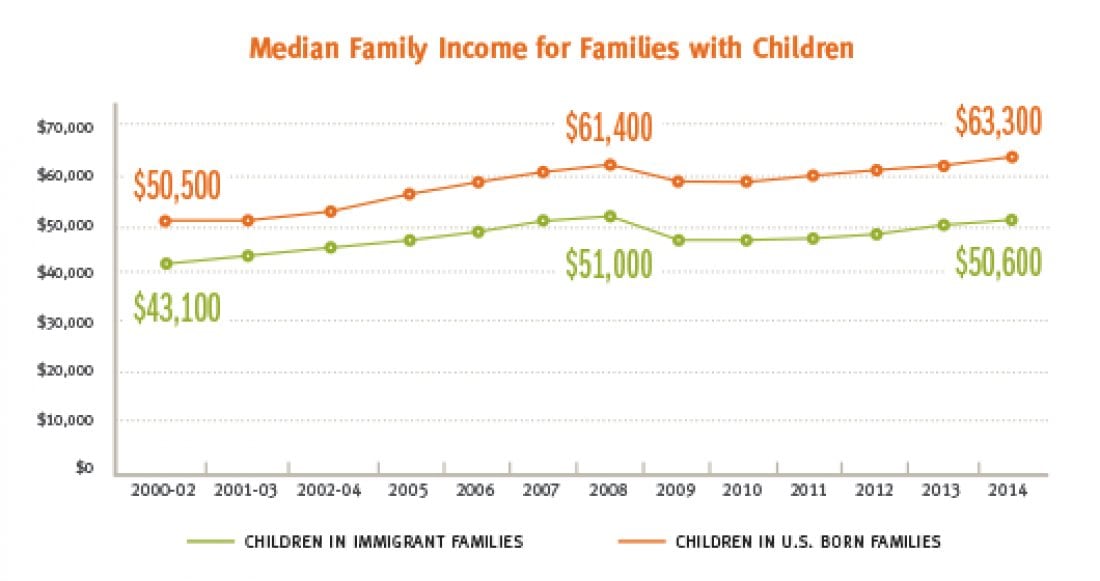Immigrant Families with Kids Are at Greater Risk of Financial Instability

A family’s financial well-being can make a difference in a child’s upbringing. For instance: Financial security reduces the likelihood that kids will live in poverty with limited resources and access to opportunities. Yet, for many immigrant families, achieving financial security can be challenging.
Kids in immigrant families are more likely than their native-born peers to have parents with stable employment. At the same time, they are also more likely to live in poverty than their U.S.-born counterparts.
In 2014, 27% of kids in immigrant families — nearly 4.8 million kids total — had parents who lacked secure employment in the United States. This rate was higher, at 31%, for kids in native-born families.
But stable employment isn’t necessarily synonymous with favorable employment.
Immigrant parents with kids brought home a median combined income of $50,600 annually. This total is $12,700 below their U.S.-born counterparts — an earnings gap that has almost doubled since 2005.
Visit the KIDS COUNT Data Center for more economic well-being data at the state and national level.
- Children living below the poverty threshold by family nativity
- Children living in low-income families (below 200% of poverty) by family nativity
- Children whose parents lack secure employment by family nativity
- Children in low-income working families by family nativity
- Children with all available parents in the labor force by family nativity
- Children with all available parents not in the labor force by family nativity
- Median family income among households with children by family nativity






